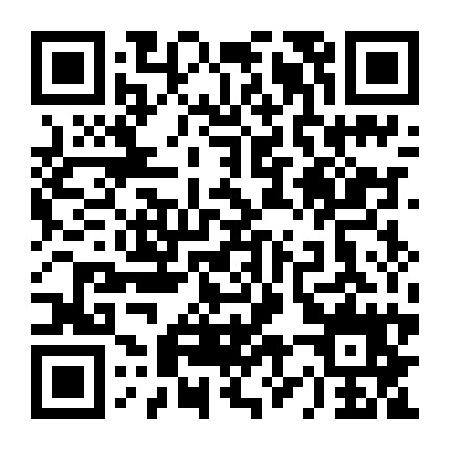2018医学考博英语听力题材语料预测:医患间主被动倾听
新东方在线考博频道整理了2018医学考博英语听力题材语料预测,希望对大家复习有所帮助。
Active listening is generally a more effective communication tool than passive listening
指导原则12 主动倾听比被动倾听更为有效
On the whole nurses probably do more listening than talking whilst executing their professional role. Consequently, it makes sense that they should work at refining their listening skills as much as possible. Most WNES healthcare communication courses will cover the subject of active listening, and l would highly encourage you to read up more about it and, if possible, attend training to learn this skill. Being non native speakers of English, active listening is all the more necessary as a means for you to ensure that you have properly understood your patients.
在整个护理过程中可能是倾听多于诉说。因此,护士应尽可能地提高自己的倾听技巧,这是很重要的。许多讲英语的西方医疗保健行业的课程包括主动倾听这一话题,我也鼓励你们阅读更多的相关内容。如果可能的话,参加培训来学习这一技巧是有必要的。由于你的母语非英语,主动倾听对于保证你能够理解你的病人来说就是一种更重要的方式。
To grasp the idea of active listening it helps to first understand about passive listening.
在理解被动倾听的基础上理解主动倾听可以事半功倍。
Passive listening is where you listen to someone talking and just absorb the information that your feel like naturally taking in. There is little effort involved and is it a mostly passive mental process much akin to the way many people "tune out" when they are watching television. When you listen passively, you are more likely to colour what other people say with your own feelings and perceptions.
被动倾听是当你听别人谈话时,得到信息就类似于许多人在“随便看”电视时获得信息一样,即无须付出什么努力。它通常是一种被动的思考过程,在被动倾听的时候,你更多地用你自己的感觉来转换其他人告诉你的事物。
Active listening, on the other hand, is a highly active mental process. A simple analogy to explain this would be that when a patient is telling you about either their emotional or clinical situation, you use the information they give you to create a precise mental “painting" of what they have said. You may often need to ask them questions to clarify what was said, much as an artist frequently looks at his subject and adjusts the painting with light brushwork to ensure that it is a faithful representation of the original image, or in your active listening case the original meaning. After all, in this mode of communication you certainly don't assume that your initial perception of the patient's meaning is right. So, essentially you are collaborating with them in order to receive a version of what they have communicated, that is less distorted with your own misinterpretations. Or to resort to the painting analogy again: to "paint" in the style of realism Not only does this method improve the accuracy of communication, but when the speaker finds that you are making an effort to really understand him thoroughly, he may possibly open up with even more details that are pertinent to his situation than he originally intended.
相反,主动倾听是一个高度的主动思考的过程。一个简单的比喻:当病人告诉你他们临床或情感方面的状况时,你就在思想上用这些信息来创造一幅精确的“图画”。你或许需要经常问他们一些问题来证实他们所说的内容,很像一个画家经常需要看一看要描绘的对象,然后再调整绘画,以保证自己的绘画是原始形象的真实表现,也就是保证你的主动倾听反映的是病人真实的状况。毕竟,在这种交流方式当中,你肯定不要假设你对病人的最初理解是正确的,你和病人的合作将得到一个他们和你交流后的说法,这个说法很少会被你的误解所扭曲。或者再回到绘画上:就是用写实主义的风格绘画。主动倾听不仅能提高交流的准确性,而且当谈话者发现你在努力试图彻底、真正地理解他时,他很可能会比一开始更加放开地说出和他病情有关的更多的细节。
An offshoot technique of active listening is that reflective listening. When patients seem to have difficulty talking or expressing an emotion that they might not be totally aware of, the nurse can reflect, or mirror, back to the patient what she perceives that the patient actually feels. Unless you are a highly intuitive person, or the kind of emotion that the patient is experiencing is very obvious, this is best done in a tentative manner (e. g. "You sound sad, is that how you feel?" instead of "I can tell you feel very sad"). After all, sometimes the nurse's perception might be wrong, and it can be very irritating for a patient having someone else trying to tell them what they “really" feel!
主动倾听的另一个分支是影射性倾听。当病人看起来难以谈论或表达他们自己没有完全意识到的情感时,护士应该影射给病人她所理解的病人的感觉。除非你是一个对别人的感觉有高度直觉的人,或病人正明显经历这种情感时,你最好以一种试探性的方式进行(如:“你听起来很伤心,是吗?”而不是“我知道你很伤心’’)毕竟有时护士的感知可能是错误的。对于病人来说,被人告知自己的“真正的”感觉时可能会是很恼火的事!
Please remember that active listening is not just used in counselling. In fact, it makes an excellent communication tool for doing clinical assessments on patients too, where you can cross check all of the verbal data they provide you with (See Example12. 2).As a result, you can feel confident that you have clearly understood your patient and know that you will be passing on relevant and reliable information to both them and your healthcare team members.
请记住:主动倾听不只被应用于心理咨询。事实上,它也是一种很好的对病人进行临床评估的交流工具,可以用来核对病人所说的全部语言性信息(见例子12.2)。由此你会有把握了解自己的病人,你也会知道自己能够向同事及病人传递相关且可靠的信息。
Example 12.1
Active listening: counselling context
例子12.1 主动倾听:心理咨询时
Effective communication
有效交流
I have a fair bit of energy in the day---l can go to work and manage all of my family's affairs, but of late, in the evenings I always feel really, really depressed, I just don't care about anything and I do all I can to avoid other people. Sometimes I'II drink till 3 or 4 in the morning---to try and blot out that heavy feeling.
我白天觉得很有劲儿……可以工作并处理家里所有的事情,但到了晚上我总感到特别郁闷,变得不关心任何事情,尽量避免见所有的人。有时我喝酒喝到凌晨四、五点……试图赶走这种强烈的感觉。mt=png&tp=webp&wxfrom=5&wx_lazy=1" width="28" height="30"/>
So while you have been able to function reasonably well in the day, lately you've been severely depressed in the nights, and the feeling is so intense that you want to completely isolate yourself; only drinking large amounts of alcohol will give you any emotional relief?
那么,相对来说你白天的时候很好,但到了晚上却严重抑郁,这种完全孤立的感觉很强烈,只有喝很多酒才能使你在情感上得到释放?
Yes, that's right, I've totally isolated myself and I'm becoming totally dependent on alcohol for any peace at all.
是的。我完全孤立了,我变得对酒精非常依赖以寻求平和的感觉。
PT
Comment: After reading Example 12. 1, you might think that active listening is just about repeating back verbatim whatever the patient says. To some degree this is true. albeit in a more condensed and to the point manner because you do want to check that your perception of all their verbal content is accurate. The magic of this technique if used effectively, however, is that it can be like holding up a mirror in front of the person, considering most people have numerous psychological and emotional blind spots this can be a gentle way of helping them to become aware of these. For example the patient finally says. "I've totally isolated myself and I'm becoming totally dependent on alcohol for any peace at all". After hearing the RN's "active feedback he seems to have reached a new level of awareness about his situation that he previously might not have experienced.
注释:在读了例子12.1之后你或许在想,主动倾听只是逐字地向病人重复他们所说的内容。是的,这在一定程度上是一种更加简洁扼要的方式,因为你想和你的病人核对你对他们语言内容的理解是否正确。如果这个神奇的技巧被有效地应用的话,它就像在你的病人面前举起一把镜子;考虑到大多数人都有无数心理和情绪上的盲点,这将是一种温和却使他们清醒的方式。正如这个病人最后所说的“我完全孤立了,我变得对酒精非常依赖以寻求平和的感觉”。当听完了护士“主动地”反馈,病人好像对自己的情况有一个全新水平的认识,而这可能是他以前没有意识到的。
Example 12.2
Active listening: clinical assessment context
例子12.2主动倾听:临床评估时
Effective communication
有效交流
I get the chest pain on and off. It certainly gets worse when I do the shopping or the gardening, but it's been like this for a few years now. My GP has said it's angina and has me on Imdur (lsosorbide Mononitrate) and I take the odd anginine (Glyceryl trinitrate) pill, but I think the pains are happening every second day instead of once a week now.
病人:我断断续续的胸痛。在买东西或在花园里干活时就更严重,像这样已经有几年了。我的医生说这是心绞痛,让我用消心痛,我偶尔会服用硝酸甘油,但现在我变得每两天而不是每周疼一次了。
So Mrs Davis, let me just make sure I've heard you right. You have had chest pain on and off for several years and your GP has diagnosed you with angina. He has treated you with Imdur and occasionally you use Anginine, right? The chest pain gets worse when you exert yourself and it now occurs more frequently than before, about once every two days instead of once a week, is that right?
注册护士:Davis夫人,现在我来确定一下我所听到的正确与否。你断断续续的胸痛已经有几年了,你的医生给你诊断是心绞痛,他给你开了消心痛,偶尔你服用硝酸甘油片,是吗?胸痛在你用力时会更加严重,现在比以前更加频繁了,是每两天一次,而不是每周一次了,对吗?
考博必备!历年真题及答案
考博精品好课,就选新东方!

 资料下载
资料下载
【必看】考博英语词汇10000例精解
发布时间:2020-09-02关注新东方在线服务号
回复【10000】免费获取
医学考博英语作文核心基础词汇整理
发布时间:2020-04-15关注新东方在线服务号
回复【医学考博】获取
医学考博英语阅读理解练习资料
发布时间:2020-04-15关注新东方在线服务号
回复【医学考博】获取
法学考博英语高频词汇word版
发布时间:2020-04-15关注新东方在线服务号
回复【医学考博】获取
医学博士英语统考真题及解析
发布时间:2019-12-26关注新东方在线服务号
回复【考博真题】获取
全国医学博士外语统一考试真题
发布时间:2019-12-26关注新东方在线服务号
回复【考博真题】获取
中科院考博英语复习备考实战经验分享
发布时间:2019-12-26关注新东方在线服务号
回复【考博经验】获取
中科院考博英语真题练习资料
发布时间:2019-12-26关注新东方在线服务号
回复【考博真题】获取

关注新东方在线服务号
关注新东方在线服务号,
免费获取考博必看干货资料

 推荐阅读
推荐阅读
考博英语写作类型:对立观点式 考博英语是考博中重点考察的科目,想要更好的拿到高分成绩,对于同学来说,大家在实际的备考中,需要更
来源 : 网络 2025-05-14 17:39:10 关键字 : 考博英语写作
考博英语写作类型:反面话题 考博英语是考博中重点考察的科目,想要更好的拿到高分成绩,对于同学来说,大家在实际的备考中,需要更全面
来源 : 网络 2025-05-14 17:38:50 关键字 : 考博英语
考博英语写作类型:反面现象批评型 考博英语是考博中重点考察的科目,想要更好的拿到高分成绩,对于同学来说,大家在实际的备考中,需
来源 : 网络 2025-05-14 17:37:56 关键字 : 考博英语
考博英语写作类型:不同观点列举型 考博英语是考博中重点考察的科目,想要更好的拿到高分成绩,对于同学来说,大家在实际的备考中,需
来源 : 网络 2025-05-14 17:37:35 关键字 : 考博英语
考博英语写作类型:阐述主题型 考博英语是考博中重点考察的科目,想要更好的拿到高分成绩,对于同学来说,大家在实际的备考中,需要更
来源 : 网络 2025-05-14 17:37:17 关键字 : 考博英语写作类型


 考博好课推荐
考博好课推荐
基础薄弱,备考迷茫,送纸质资料
价格 : ¥2280元
资深教师,教学简明,直接有效!
价格 : 0元
 资料下载
资料下载
关注新东方在线服务号
回复【10000】免费获取
关注新东方在线服务号
回复【医学考博】获取
关注新东方在线服务号
回复【医学考博】获取
关注新东方在线服务号
回复【医学考博】获取
关注新东方在线服务号
回复【考博真题】获取
关注新东方在线服务号
回复【考博真题】获取
关注新东方在线服务号
回复【考博经验】获取
关注新东方在线服务号
回复【考博真题】获取

 阅读排行榜
阅读排行榜
 相关内容
相关内容